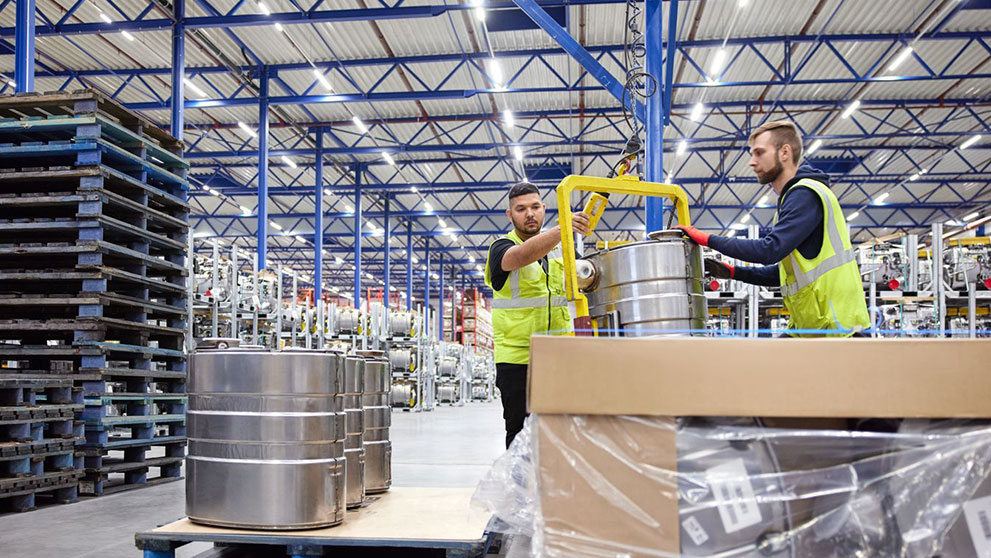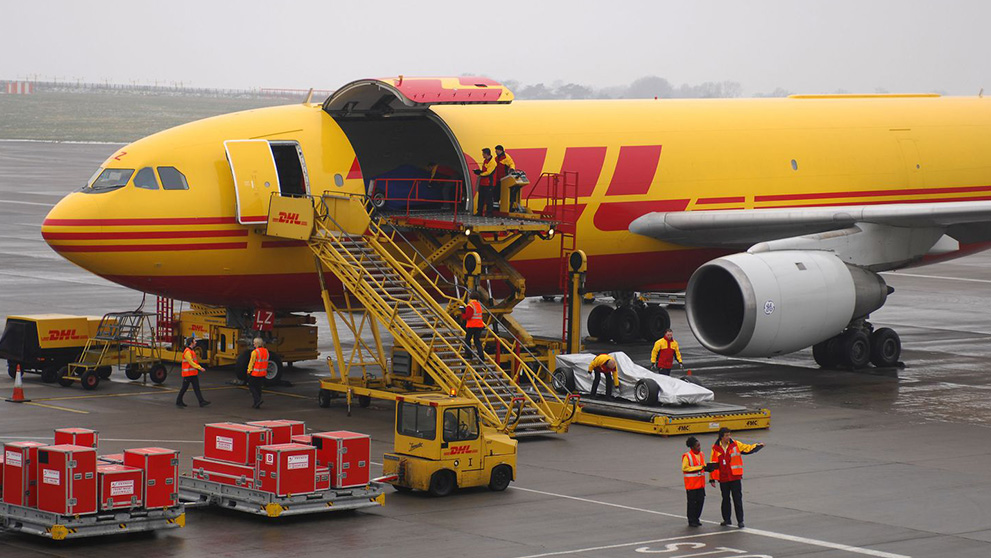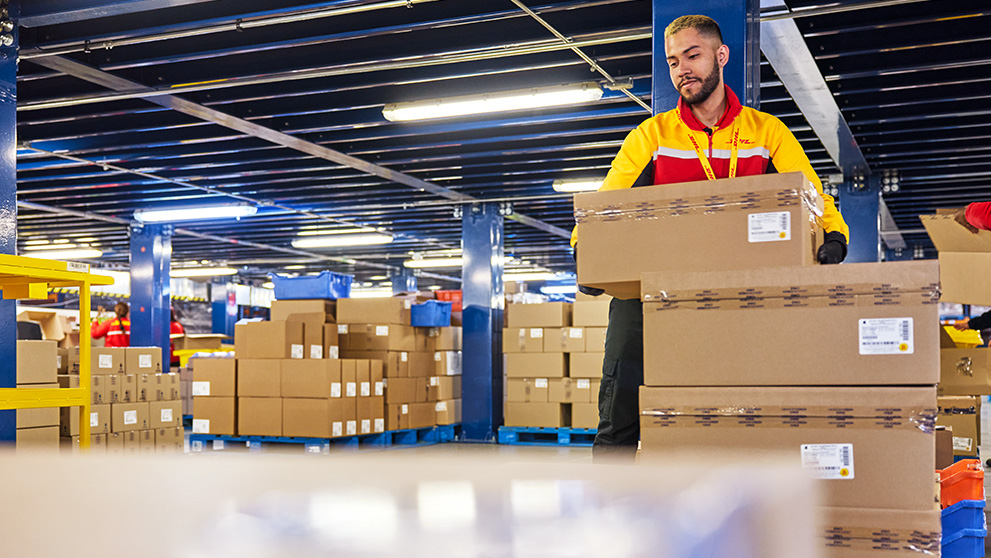With a growing economy, Bangladesh has seen a rise in the demand for imported liquids, such as refined petroleum, oil, and natural gas.
According to the Observatory of Economic Conservatory, the top import of Bangladesh is refined petroleum, valued at over US$5.48 billion. As the country continues to develop and modernise its infrastructure and industries, the consumption of petroleum products and other liquids is expected to remain high.
However, importing these essential commodities from international exporters requires careful consideration of Bangladesh's regulations and safety protocols.
Let’s now look at the process of shipping liquids to Bangladesh, whether they’re refined petroleum for fuel or other types of liquids used in manufacturing processes.
Step #1: Determine the type of liquid you’re importing
Internationally shipped liquids fall into various categories, such as hazardous chemicals, drugs, and industrial.
It is essential to first identify the specific category and Harmonised System (HS) code associated with the liquid you intend to import from other countries. This HS code is a standardised system used worldwide to classify traded products.
Once you have determined them, the next step is to familiarise yourself with Bangladesh's liquid prohibitions and restrictions.
Step #2: Take note of Bangladesh’s liquid prohibitions & restrictions
Bangladesh maintains a list of prohibited and restricted items that cannot be imported or require special permits.
When shipping your liquids internationally, cross-reference its category with the list of prohibited and restricted items in Bangladesh to verify if there are any restrictions on importing the type of liquid you are dealing with.
For example, these are the prohibited liquids:
- Narcotics;
- Psychotropic substances;
- Hazardous chemical substances;
- Industrial sludge and sludge-produced fertilisers and organic materials, and
- Chemical pesticides and industrial chemicals containing niacin, dichloromethane, niacin, niacin, niacin, dichloromethane, dichloromethane, dioxin, dioxygen, phenylephrine under the Stockholm Convention on Persistent Organic Pollutants (POPs), and
- Importation of goods from Israel and shipment of goods on vessels operating under the Israeli flag
Instead of being banned, certain hazardous chemicals, drugs, and other industrial liquids may simply have restrictions. This means they require special permits, conditions, or can only be imported by authorised industrial users like pharmaceutical enterprises or government agencies.
Here are some commonly shipped liquids with the various conditions to be met:
1. Acid
An industrial user having a licence under Acid Control Act, 2002 (Act No. 1 of 2002) and Acid (Import, Production, Storage, Transport, Sale and use) Control Rules, 2004 shall be allowed to import any sulphuric acid, hydrochloric acid; nitric acid; phosphoric acid; caustic potash; carbolic acid; battery fluid (acid); chromic acid; aqua-regia, and other corrosive goods of acid type as determined by the government in condensed, liquid or mixed acid up to the amount fixed by the sponsoring authority in their import entitlement.
However, educational and research institutes approved by the government shall be allowed to import above mentioned acids with prior approval of the Ministry of Commerce.
2. Petroleum products and Liquefied Natural Gas (LNG)
Petroleum products and LNG can be exported internationally from other countries to Bangladesh, subject to the following conditions:
- All petroleum products except liquid paraffin (HS Heading no. 27.10 and all HS Code Numbers classifiable under it) is importable by Bangladesh Petroleum Corporation (BPC), but all types of finished lubricating oil, grease & transformer oil along with motor car engine of minimum two APISC or CC engine oil, lubricating oil of JASO-FB grade or TC for two-stroke engine shall also be importable on private basis;
- Notwithstanding anything contained in paragraph (a), all kinds of Lube Base Oil (HS Code 2710.19.22) shall be importable by private Lube Blending Plants;
- The private sector importers shall have licences from the Energy Regulatory Commission, according to the Energy Regulatory Commission Act, 2003;
- LNG, liquefied Propens & Butanes (HS Code No.2711.11.00, 2711.12.00 & 2711.13.00 of HS Heading No.27.11) are importable on a private basis, but the private sector importers shall have licences from the Energy Regulatory Commission, according to the Energy Regulatory Commission Act, 2003;
- In the case of private sector import of LNG, permission from the Ministry of Power, Energy & Mineral Resources is required; and condensate shall be importable subject to the following conditions:
- Condensate can be imported only by the owners of approved fractionation plants for use in their own plants;
- The enterprise shall have to make a contract with BPC as per the Bangladesh Petroleum Act, 1974 (Act No. LXIX of 1974) and related rules and regulations issued by the Government from time to time, including provisions of this Act shall be applicable for the importer;
- Prior approval shall have to be taken from BPC regarding the quantity of importable condensate and the ratio of products produced from condensate;
- A certificate mentioning "condensate is being imported for use in its own operational plant only" shall have to be taken from an officer, not below the rank of Director, of BPC before each consignment, informing BPC about the importable quantity of condensate.
Note that non-commercial importers (individuals and organisations) may only import goods worth up to US$7,000 for personal use. With permission, these non-commercial importers may also import more than US$7,000 worth of goods.
Step #3: Ensure all documentations are in order
Shipping liquids to Bangladesh requires comprehensive documentation to ensure compliance with international customs and regulatory authorities.
A declaration must be submitted within 15 days from the date of lodgement with Customs of the transport documents (e.g. manifest) notifying Customs of the arrival of the cargo.
Some of the essential documents include:
- Commercial invoice: A detailed invoice specifying the description, quantity, value, and country of origin of the liquid.
- Bill of lading/air waybill: A document acknowledging the receipt of the liquids for transportation.
- Import licence or permit: Depending on the nature of the liquid, an import licence or permit may be required. You’ll be able to get a permit from the Ministry-specific department depending on what you intend to import.
- Certificate of origin: This document verifies the country where the goods were manufactured. This also be noted on all products, product packaging, or containers. However, the country of origin is not required to import export-oriented industrial-related raw materials.
- Packing list: A detailed list describing the imported liquid’s contents, weight, and packaging.
- Insurance policy/cover note: An insurance policy/cover note safeguards imported goods against damage or loss during transportation in Bangladesh.
- Value Added Tax (VAT)/ Business Identification Number (BIN) certificate: The VAT and BIN certificates indicate compliance with value-added tax regulations and provide a unique business identification number.
- Letter of Credit (L/C): This letter ensures secure payment to exporters upon meeting specified conditions, reducing risks in international trade transactions for imported goods to Bangladesh.
Note that nuclear radiation tests are also mandatory for internationally shipped liquids, including milk, dairy, edible oil, and other food products. Once tested, submit the results to the Customs authorities.
Step #4: Look up and pay the relevant customs, duties & taxes
Customs clearance is the next step in the import process. The imported liquids must undergo a customs assessment to determine the applicable duties and taxes.
Import duties and taxes are levied based on the HS code, declared value, and imported liquid type. Rates may vary depending on the classification and purpose of the liquid.
Below is the list of items that are exempt from customs duties:
- Raw materials of medicine;
- Poultry medicine;
- Feed & machinery;
- Chemicals of leather and leather goods;
- Textile raw materials;
- Relief goods;
- Goods for blind and physically disabled people, and
- Import by Embassy and United Nations
Step #4: Take note of packaging and safety considerations
Before you ship off your liquids, it is vital to ensure that the packaging meets international standards and complies with the safety regulations of both the exporting and importing countries.
Consider the nature of the liquid, transportation conditions, and any specific guidelines provided by regulatory authorities. Proper labelling and marking are also crucial to facilitate safe handling and transportation.
For example, if you’re transporting ethanol, be sure the packaging materials chosen can withstand its flammability risk and prevent any leakage or spillage during transportation. Labels should also include hazard symbols, handling instructions, and any specific warnings required by regulatory authorities.
Still unsure what to do? Check out these top packing mistakes to avoid.















